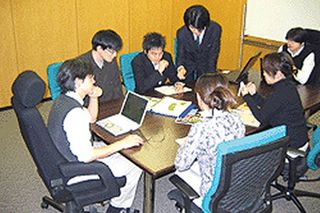Club Nintendo
Discover why the franchise players aren't made by who you think
So Miyamoto, then, upturned the tables at Retro. In rapid succession he cancelled four of the studio's five projects, including a Twisted Metal-style car racing game called Thunder Rally, which not only promised online multiplayer support for GameCube but was reportedly almost finished. Retro NFL was allegedly canned out of concern for its prospects against Madden and NFL2K, and an ambitious RPG called Raven Blade was also lost. But the real reason for this videogame massacre seems clearer when you consider the identity of project number five. Once a directionless action adventure called - you'll never guess - Action Adventure, now an action adventure called Metroid Prime.
And Retro was having trouble with their first "proper" Nintendo game. Bringing Samus Aran's star trek into 3D space was proving particularly difficult for even this talented outfit, reinforcing Miyamoto's long-held belief that third-person action control schemes, for this kind of game, simply didn't work. Nintendo is widely believed to have then ordered the game's switch to the first-person perspective that set Prime back on track, but sparked enormous controversy among fans.
The relationship between Nintendo and Retro visibly soured during 2001, and you could argue that the latter's own attitude toward their various long-distance cousins was, to put it lightly, remote. It was a time of upheaval, GameCube fighting for a fiercely competitive next-gen market and their creator's attention shifting toward third, rather than second-party development. A Big Brother atmosphere is said to have overwhelmed the Prime team in particular, with electronic door passes being used to monitor attendance, and Spangenberg's allegedly being the worst of all.

But while their manner might seem a tad indelicate, the fact is that Nintendo was simply doing what they always have in these situations - safeguarding their valued property and focusing solely on the end result. Once they had purchased $1 million in Retro stock in 2001 - making them an internal studio and waving goodbye to their founding owner - Metroid Prime went on under Nintendo's careful guidance to become the series we know today: the beautiful GameCube masterpiece, the great sequel and a not unduly critical game in Wii's second wave.
In a similar tale, Canada's Silicon Knights, another of the second-party studios signed during the late Nineties, ran into similar problems with psychological thriller Eternal Darkness: Sanity's Requiem. Nintendo likewise agreed to push it back, prompting President Denis Dyack to observe that "they won't release a game until it's the best it can be." Unfortunately Nintendo would then end their contract with the studio after just one other game (the GameCube remake Metal Gear Solid: The Twin Snakes), suggesting the Japanese giant to be a company of firm beliefs but, perhaps, fickle tastes.
And over the last few years those tastes have seemed more erratic than ever, with several of Nintendo's all-stars appearing in some truly questionable endeavors. Super Mario Ball, developed by Costwolds-based studio Fuse Games and released in 2004 for GBA, is still regarded as one of, if not the worst, Mario game of all time, even though its creators then redeemed themselves a year later with the creative Metroid Prime Pinball for DS. Wario: Master of Disguise fared only marginally better; developer Susak's lackluster platformer being the only one of five Wario Land titles to be handled externally.
Sign up to the GamesRadar+ Newsletter
Weekly digests, tales from the communities you love, and more
Most Popular


